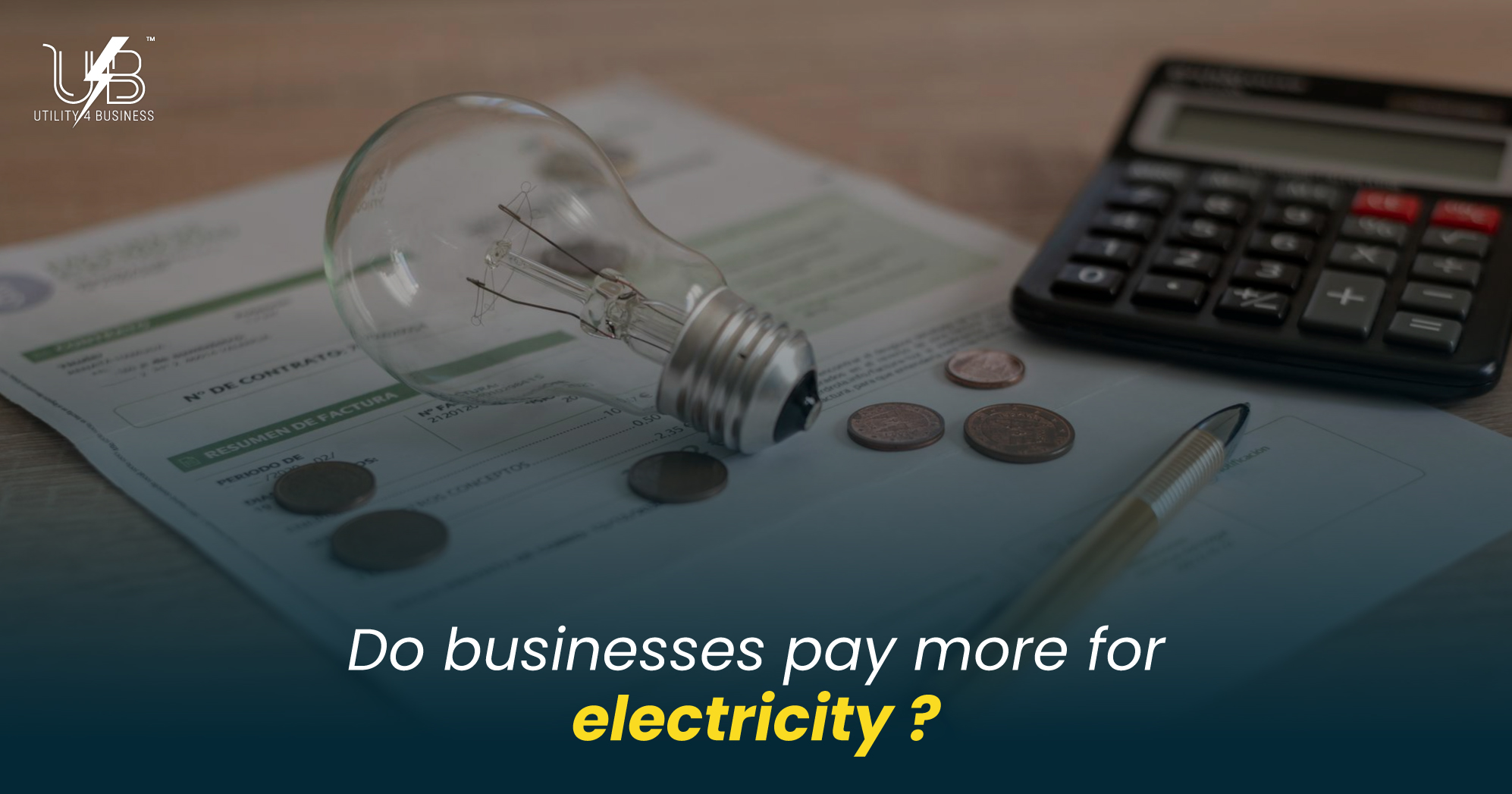Do businesses pay more for electricity?
Decoding Business Electricity Rates

Did you know that in early 2025, small businesses were paying around 26 pence per kWh, while domestic households were capped at 24.9 pence per kWh? On the face of it, that’s a tiny difference—but when you add standing charges, VAT, and sheer volume of usage, the picture changes fast.
Understanding Electricity Rates: Commercial vs. Residential
How Electricity Rates Are Structured
Electricity charges break down into two main parts: the unit rate (pence per kWh) and the standing charge (pence per day).
- Residential users pay a capped unit rate of 24.9p/kWh and about 25p/day in standing charges.
- Micro businesses see unit rates near 25.5p/kWh and standing charges of 35–37p/day. That’s an extra £36–£73 a year before you even plug in your first device.
Large firms often score unit rates as low as 21–24p/kWh, but they still face high daily fees when their usage splits into more bands.
Key Differences in Billing
- Domestic bills stay simple: flat or tiered rates plus one standing charge. VAT sits at a reduced 5%, and the Ofgem price cap offers a safety net.
- Commercial bills pack in more line items: higher standing charges, full 20% VAT, plus non-bypassable network levies. You won’t get a cap, so your only guardrail is the contract you negotiate.
Factors Influencing Commercial Electricity Costs
Business Size and Energy Consumption
- Micro businesses (under 15,000 kWh/year) pay around 25.5p/kWh yet see hefty standing fees.
- Small businesses (up to 50,000 kWh) hit 25.6p/kWh, with daily fees rising to 45–49p.
- Medium firms use more, so their unit rate ticks up to 25.9p/kWh, standing at 49–57p/day.
- Large and very large users can get 21–24p/kWh, plus standing charges over £1/day.
Bigger users benefit from bulk discounts—yet they still rack up bills over £19,000 annually simply because they burn through so much power.
Geographic Location
You might think London is the priciest spot to run a business, but it actually sits near the bottom with average annual bills of about £7,027. In North Wales, Merseyside, and Cheshire, businesses pay closer to £8,053—that’s a 14% jump. Unit rates in those regions can climb to 30.8p/kWh, with standing charges near £1/day.
Time of Use and Demand Charges
Most small and medium firms stay on standard tariffs. But high-usage sites can face demand charges. If your peak draw in a billing cycle spikes, you pay extra based on that maximum rate, so many firms smooth out operations to avoid afternoon peaks.
Industry-Specific Needs
- Grocery stores run refrigerators 24/7.
- Hospitals need backup power on tap.
- Manufacturers fire up heavy machinery at shift start.
These energy needs push some firms into bespoke deals with capacity guarantees and standby fees.
Do Businesses Pay More? A Comparative Analysis
At face value, micro and small businesses sit close to household rates. But the headline hides other costs.
Hidden Costs
- VAT difference: On a £2,760 bill, businesses pay nearly £460 in VAT, compared to about £87 for homes.
- Levies and network charges: Companies cover full network upkeep costs.
- Market swings: Over five years, some businesses saw rates spike by 143%. Homes have a cap; firms don’t.
Strategies for Businesses to Manage Electricity Costs
Energy Efficiency Measures
- Swap old bulbs for LEDS and add motion sensors.
- Fit smart thermostats to zone your heating and cooling.
- Keep equipment well-maintained to spot leaks and waste.
Shifting Usage to Off-Peak Hours
- Run dishwashers, ovens, or heavy machines overnight or on weekends if your contract allows.
- Spread staff shifts to flatten peak demand days.
Renewable Energy Solutions
- Invest in solar PV on rooftops to cut grid use.
- Explore Power Purchase Agreements (PPAS) for fixed-rate renewable power and hedge against gas price swings.
Energy Audits and Supplier Comparison
- Book an annual energy audit to find hidden waste.
- Use a business electricity comparison service to get fresh quotes and switch suppliers easily.
Conclusion
On paper, businesses pay only a penny or two more per kWh than homes, but standing charges, full VAT, and higher usage volumes quickly widen the gap. Rates also depend on location, size, and sector needs. By boosting efficiency, shifting demand, embracing renewables, and using a business electricity comparison tool, you can cut your energy spend and protect your margins.
Want to see how much you could save? Visit Utility4Business to compare UK business electricity rates and get personalised quotes in minutes. Take charge of your energy costs today and keep your business thriving.
Find This Article Helpful? Share It Now!
At Utility4Business, we offer top-notch customer support and business utility solutions for businesses across the UK. Consider sharing this article and helping others discover how our expertise can add value to their business success.

Read Our Latest Posts
Explore our latest blog posts and learn how Utility4Business can support your business growth with tailored utility solutions and services. Stay ahead of the curve with the latest information from industry experts and take advantage of our user-friendly comparison services to find the best business deals.


Get Connected
At Utility4Business, our team of experts can help you figure out the highest-value business utility deals that will help your business grow over time.


